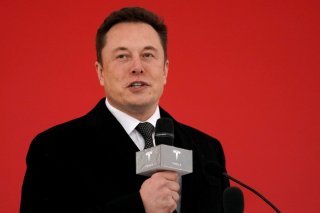Musk Presses Ex-Twitter Executive to Testify on Bot Accounts
The effort to secure testimony from Kayvon Beykpour, Twitter’s former product head, comes after 98.6 percent of Twitter shareholders voted to approve the sale to Musk.
The start of the trial in Delaware that will likely determine whether Elon Musk will have to abide by his commitment to buy Twitter is less than a month away. The latest development, per Bloomberg, is that Musk is seeking testimony from Twitter’s former product head, Kayvon Beykpour.
Beykpour, who departed Twitter earlier this year, has “so far evaded efforts to make him turn over documents or provide testimony,” Musk claimed in a court filing last week. Musk is seeking information related to his claim that he was misled about the number of bots, or fake accounts, on the platform.
According to Bloomberg, Beykpour is not currently in the United States and is “therefore beyond the subpoena power of the U.S. courts during the pendency.”
In August, when Musk asked for information from twenty-two Twitter employees, the Delaware Court of Chancery ruled that Twitter was required to collect such information from only one of them: Beykpour. Back in May, shortly after the announcement that Musk had agreed to buy the company but before he exited the deal, Beykpour announced that he was leaving the company after seven years.
“Interrupting my paternity leave to share some final @twitter-related news: I’m leaving the company after over 7 years,” he said in a series of tweets.
“The truth is that this isn’t how and when I imagined leaving Twitter, and this wasn’t my decision. Parag asked me to leave after letting me know that he wants to take the team in a different direction,” Beykpour said, referring to Twitter CEO Parag Agrawal. “While I’m disappointed, I take solace in a few things: I am INSANELY proud of what our collective team achieved over the last few years and my own contribution to this journey.”
Last week, a majority of Twitter shareholders approved the deal to sell the company to Musk for about $44 billion, despite the entrepreneur’s push to get out of the deal to buy the company and take it private.
"The shareholder approval satisfies the final condition precedent to the closing of the merger under the merger agreement," Twitter said of the approval, which 98.6 percent of shareholders voted for.
After Musk announced that he wanted to exit the deal, Twitter sued him in July, accusing him of acting in bad faith and seeking to hold him to the merger agreement.
“Musk refuses to honor his obligations to Twitter and its stockholders because the deal he signed no longer serves his personal interests," Twitter's lawsuit said. "Musk apparently believes that he — unlike every other party subject to Delaware contract law — is free to change his mind, trash the company, disrupt its operations, destroy stockholder value, and walk away.”
Stephen Silver, a technology writer for The National Interest, is a journalist, essayist and film critic, who is also a contributor to The Philadelphia Inquirer, Philly Voice, Philadelphia Weekly, the Jewish Telegraphic Agency, Living Life Fearless, Backstage magazine, Broad Street Review and Splice Today. The co-founder of the Philadelphia Film Critics Circle, Stephen lives in suburban Philadelphia with his wife and two sons. Follow him on Twitter at @StephenSilver.
Image: Reuters.

